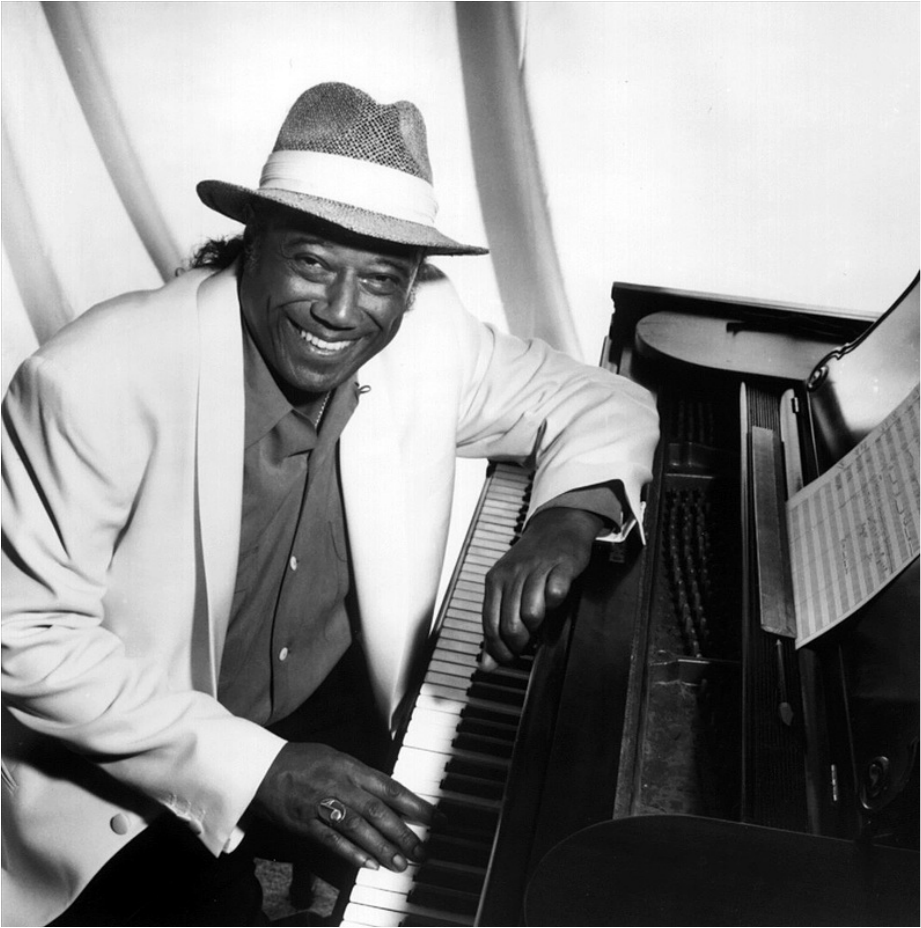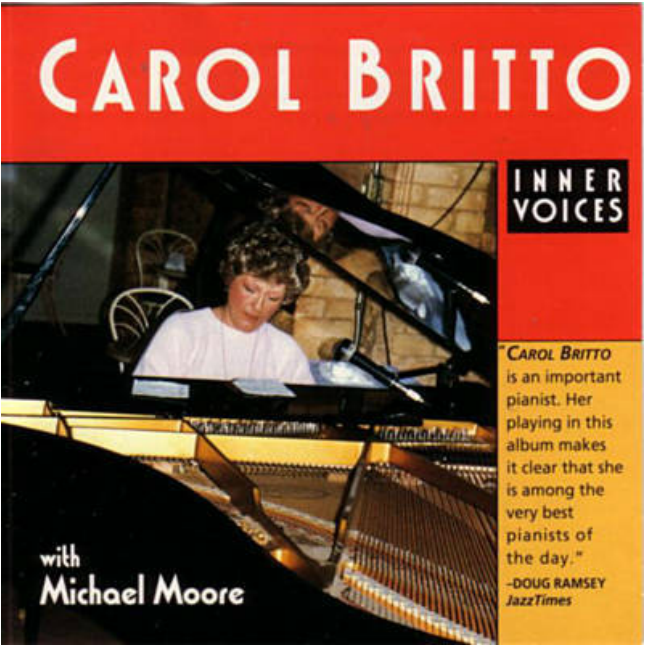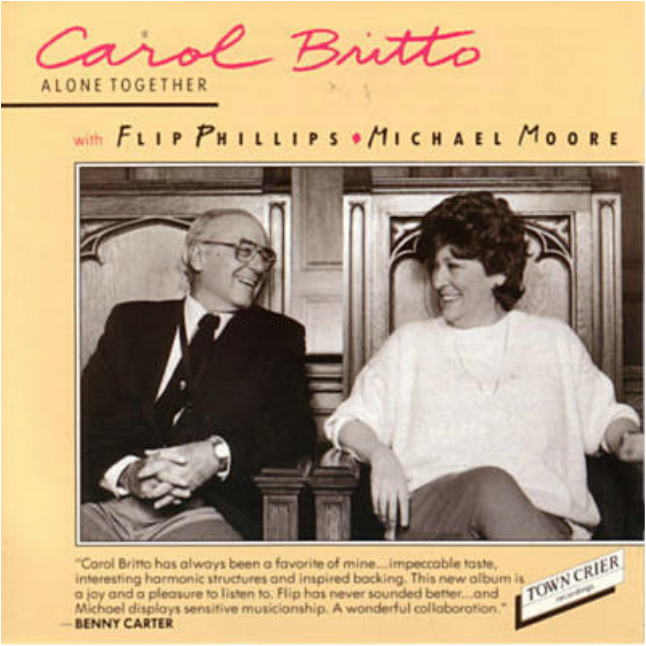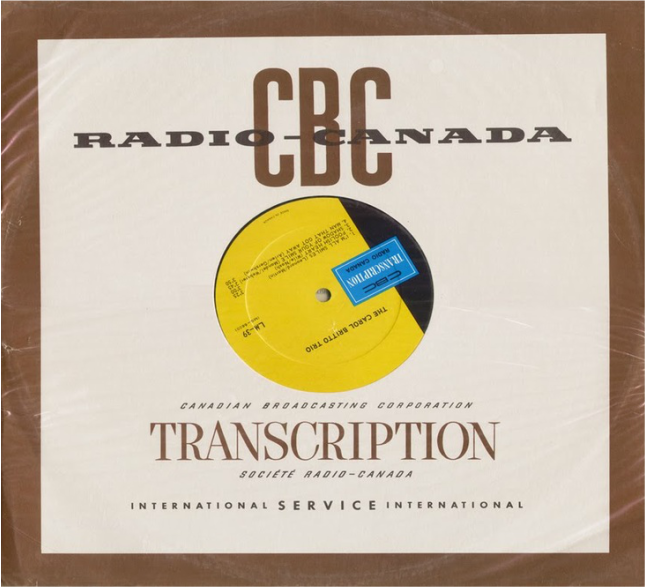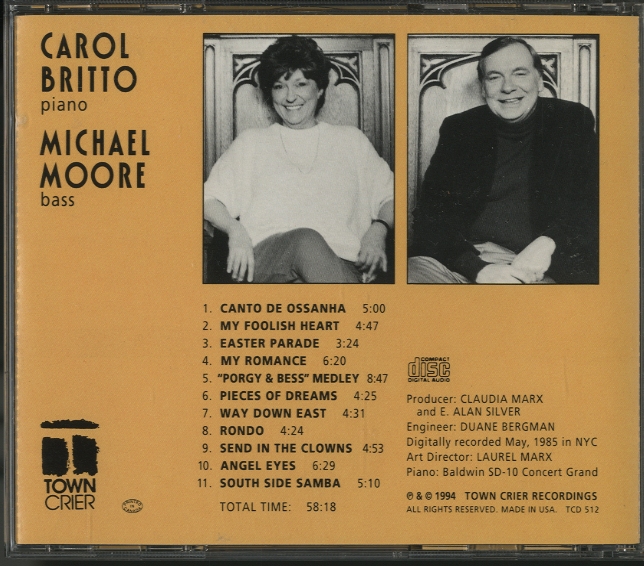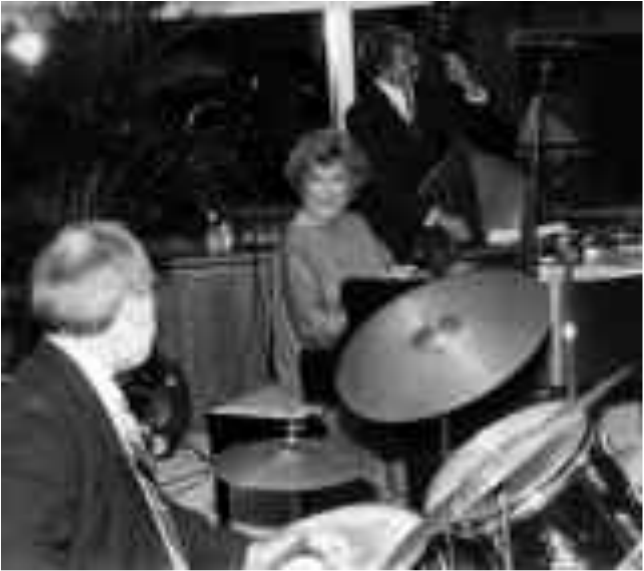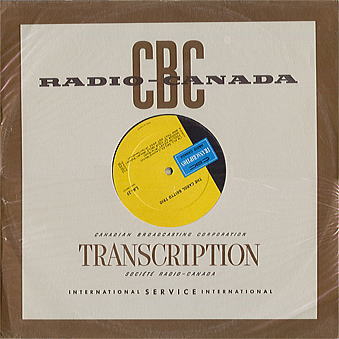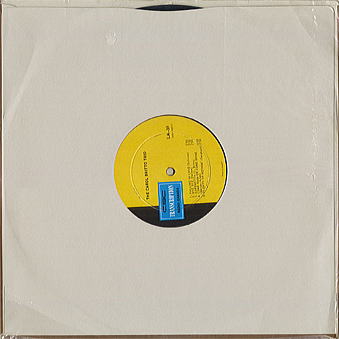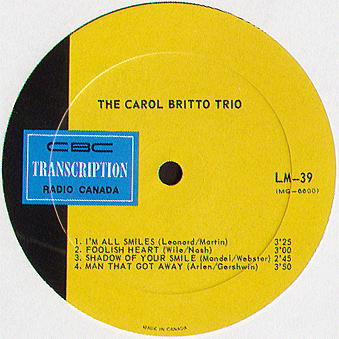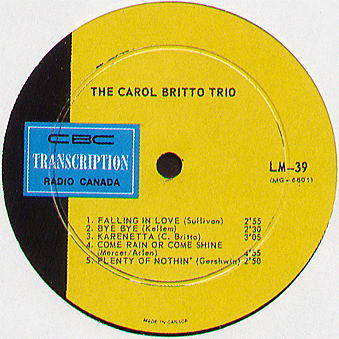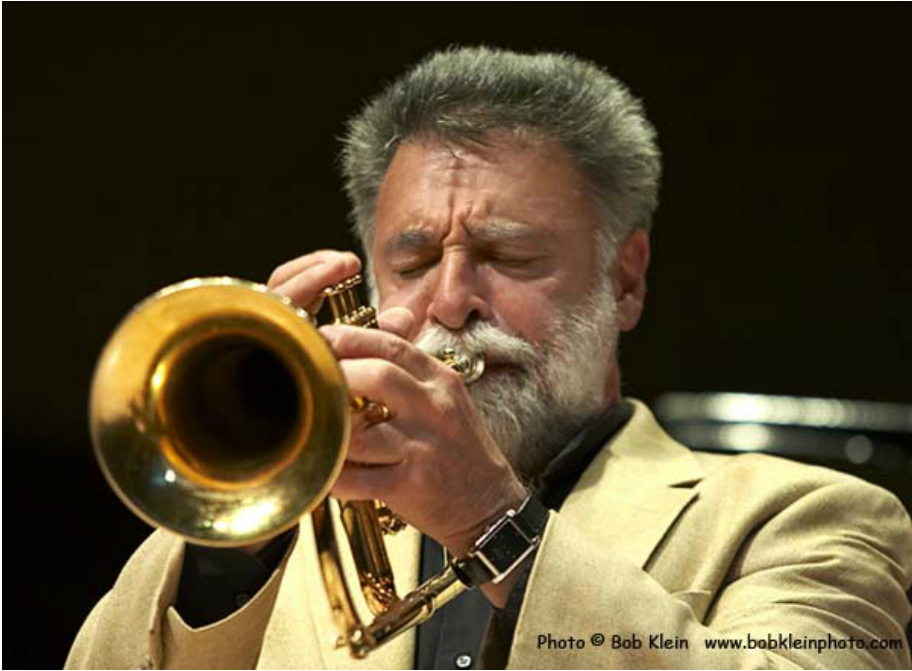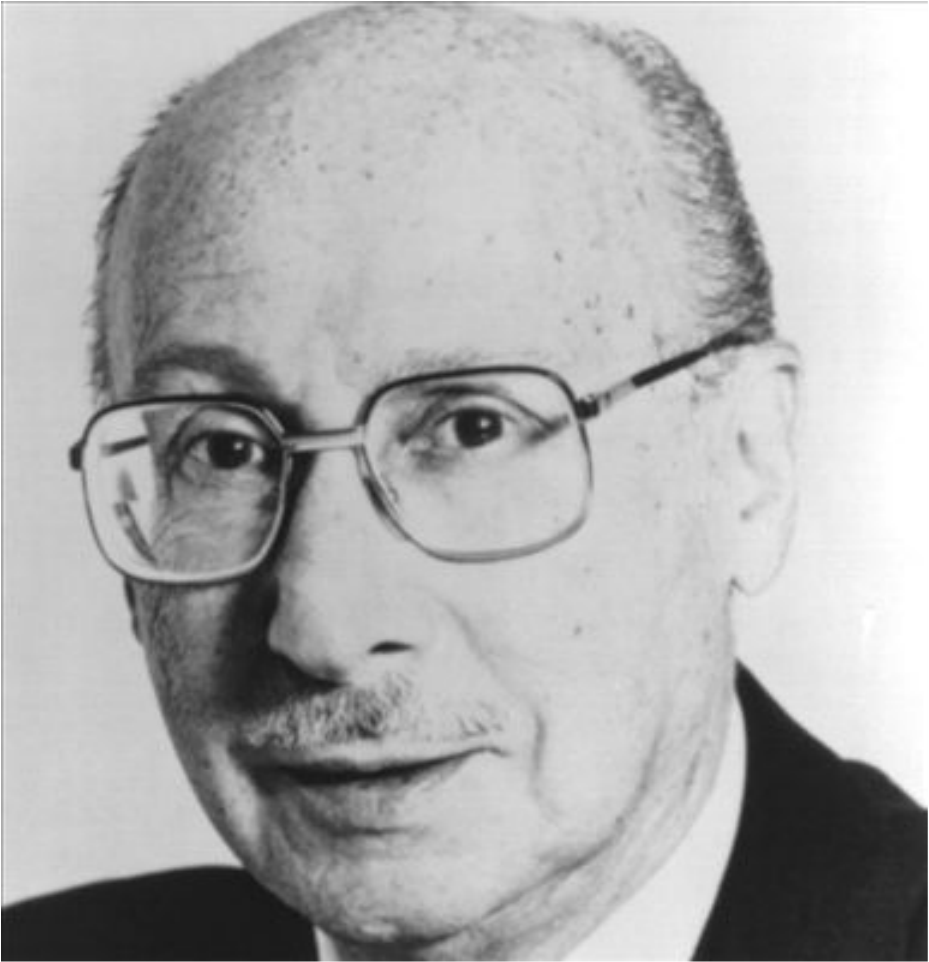MUSIC NEWS
billie holiday mp4
PHIL NIMMONS: DEAN OF CANADIAN JAZZ
PHIL NIMMONS On Monday, June 3rd 2013, composer, bandleader, clarinetist and educator Phil Nimmons turns 90.
For over 50 years, Phil has been a leader in shaping the jazz scene in Canada. As a composer, he has written over 400 original compositions for film, TVand radio, as well as hundreds of jazz orchestrations for the bands he has led.
As a player, his style remains strong and vibrant, and he constantly takes on new musical challenges.
And as a teacher, he has helped start some of the best programs that this country has to offer.
Phil Nimmons truly has become the Dean of Canadian Jazz.
For over 50 years, Phil has been a leader in shaping the jazz scene in Canada. As a composer, he has written over 400 original compositions for film, TVand radio, as well as hundreds of jazz orchestrations for the bands he has led.
As a player, his style remains strong and vibrant, and he constantly takes on new musical challenges.
And as a teacher, he has helped start some of the best programs that this country has to offer.
Phil Nimmons truly has become the Dean of Canadian Jazz.
Horace Silver
Los Angeles - America - June 18 - 2014 - Jazz musician Horace Silver, a composer known for pioneering hard bop, has died, National Public Radio said on Wednesday. He was 85. Silver, a native of Norwalk, Connecticut, was shaped by the Portuguese influence in the islands of Cape Verde. His family emigrated to the United States from the Cape Verde area.
Silver, who played piano and saxophone, recorded exclusively for Blue Note Records over three decades before founding his
own label, Silveto Records. Silver composed music featuring percussive, hard-driving beats that was inspired by his philosophy
of holistic self-help, jazz critic Leonard Feather wrote in his "Encyclopedia of Jazz." His most notable works include
"Song For My Father," inspired by Cape Verdean folk music and gospel-driven "The Preacher." His work also appeared on
a number of Miles Davis' albums, including 1954's "Walkin'."
NPR said Silver's son Gregory had called in directly with the news of his death. Attempts to reach Silver's family were unsuccessful.
Reporting by Piya Sinha-Roy, Editing by Alex Dobuzinskis and Cynthia Osterman - Reuters
Silver, who played piano and saxophone, recorded exclusively for Blue Note Records over three decades before founding his
own label, Silveto Records. Silver composed music featuring percussive, hard-driving beats that was inspired by his philosophy
of holistic self-help, jazz critic Leonard Feather wrote in his "Encyclopedia of Jazz." His most notable works include
"Song For My Father," inspired by Cape Verdean folk music and gospel-driven "The Preacher." His work also appeared on
a number of Miles Davis' albums, including 1954's "Walkin'."
NPR said Silver's son Gregory had called in directly with the news of his death. Attempts to reach Silver's family were unsuccessful.
Reporting by Piya Sinha-Roy, Editing by Alex Dobuzinskis and Cynthia Osterman - Reuters
Carol Britto
Carol Britto was born in Cleveland but Toronto was her artistic home. The polished jazz pianist was a singular presence on the Toronto jazz club scene for some 27 years. She found various gigs around town from playing at Lyte’s, an intimate jazz cabaret at the Royal York Hotel but she made her mark leading the Carol Britto Trio, the house band at George’s Bourbon Street backing veteran jazz stars from the deeply soulful saxophonist Eddy “Lockjaw” Davis to the swinging Milt Jackson.
“Man, she can wear you out,” Joe Venuti once told me. Venuti was possibly the most aggressive jazz viloinist of his day and Britto was his match, “No matter what tempo,” he added. Britto solos were “potential juggernauts,” noted New York Times critic John S. Wilson said after her return to the Big Apple in the early ’80s, where she played an A List of clubs such as Hanratty’s and the Village Corner. Her playing also had its intricate, intellectual side with its many “interesting harmonic structures,” as saxophonist/composer Benny Carter recognized.
Other musicians might give testimony to her culinary skills, but she seemingly maintained a sharp distinction between her home life and her jazz life. Married to the fine bassist Bill Britto, she had a close family with children and grandchildren. Yet she never seemed more private than when she was at her most public on-stage. Engaged but aloof was her preferred style.
Chet Baker liked that about her: the aloof part. “We connect in some way I can’t explain,” the troubled trumpeter told me early one Sunday morning in a hotel restaurant after a night when he may not have known sleep. I suspect it was the case of one deeply private person understanding the same thing in someone else. Perhaps this explains the title of Alone Together, the album she recorded with Flip Phillips and Michael Moore, or the naming of Inner Voices, also recorded with Moore.
“Man, she can wear you out,” Joe Venuti once told me. Venuti was possibly the most aggressive jazz viloinist of his day and Britto was his match, “No matter what tempo,” he added. Britto solos were “potential juggernauts,” noted New York Times critic John S. Wilson said after her return to the Big Apple in the early ’80s, where she played an A List of clubs such as Hanratty’s and the Village Corner. Her playing also had its intricate, intellectual side with its many “interesting harmonic structures,” as saxophonist/composer Benny Carter recognized.
Other musicians might give testimony to her culinary skills, but she seemingly maintained a sharp distinction between her home life and her jazz life. Married to the fine bassist Bill Britto, she had a close family with children and grandchildren. Yet she never seemed more private than when she was at her most public on-stage. Engaged but aloof was her preferred style.
Chet Baker liked that about her: the aloof part. “We connect in some way I can’t explain,” the troubled trumpeter told me early one Sunday morning in a hotel restaurant after a night when he may not have known sleep. I suspect it was the case of one deeply private person understanding the same thing in someone else. Perhaps this explains the title of Alone Together, the album she recorded with Flip Phillips and Michael Moore, or the naming of Inner Voices, also recorded with Moore.
Music was Carol's life. School concerts led to a scholarship to the Cleveland Institute of Music. Cleveland jazz lovers may remember her playing at the Purple Tree Lounge in the Manger Hotel. From there she began to make a name for herself in New York and in Toronto where she studied with the incomparable Oscar Peterson. "Oscar taught me how to be a take-charge pianist," she said. Her forceful energetic technique was often compared to Oscar's musical energy and style.
Carol was famous as a solo performer and as leader of the Carol Britto Trio. During her career, she accompanied legendary names in jazz including Chet Baker, Benny Carter, Helen Humes, Joe Williams, Major Holley, Zoot Sims, Phoebe Snow, Joe Venuti, Doc Cheatham, Marvin Stamm, Roy Eldridge, Flip Phillips, Bobby Rosengarden, Eddie "Lockjaw" Davis, Gary Mazzaroppi, Milt Jackson, Lance Hayward, Tootsie Bean, and Michael Moore. She played with Percy Faith and his Orchestra and she also toured with the Tommy Dorsey Band.
Trumpet player Marvin Stamm said of her, "If a visiting jazzman wants a powerful yet sensitive musical companion at the piano, nobody in the business can equal her." Tenor saxophonist Eddie "Lockjaw" Davis called her "Lady Britto, the Countess Basie of the piano." The great jazz violinist Joe Venuti called her simply, "Mother Jazz."
In New York, Carol played all the major clubs: The Knickerbocker, The Fortune Garden Pavilion, The Village Corner, Birdland, Café Gianluca, J's, Zinno, Carnegie Tavern, Hanratty's and the Rainbow Room. Britto's albums won her a wider audience and acclaim with "Alone Together" with Flip Phillips. Her album "Inner Voices" with Michael Moore, was also recorded on the Town Crier label.
Carol had many interests. She was a gourmet chef who loved cooking for friends. She was an avid reader. She was expert at working crossword puzzles. But it was to her music that she gave her heart and soul.
Carol was famous as a solo performer and as leader of the Carol Britto Trio. During her career, she accompanied legendary names in jazz including Chet Baker, Benny Carter, Helen Humes, Joe Williams, Major Holley, Zoot Sims, Phoebe Snow, Joe Venuti, Doc Cheatham, Marvin Stamm, Roy Eldridge, Flip Phillips, Bobby Rosengarden, Eddie "Lockjaw" Davis, Gary Mazzaroppi, Milt Jackson, Lance Hayward, Tootsie Bean, and Michael Moore. She played with Percy Faith and his Orchestra and she also toured with the Tommy Dorsey Band.
Trumpet player Marvin Stamm said of her, "If a visiting jazzman wants a powerful yet sensitive musical companion at the piano, nobody in the business can equal her." Tenor saxophonist Eddie "Lockjaw" Davis called her "Lady Britto, the Countess Basie of the piano." The great jazz violinist Joe Venuti called her simply, "Mother Jazz."
In New York, Carol played all the major clubs: The Knickerbocker, The Fortune Garden Pavilion, The Village Corner, Birdland, Café Gianluca, J's, Zinno, Carnegie Tavern, Hanratty's and the Rainbow Room. Britto's albums won her a wider audience and acclaim with "Alone Together" with Flip Phillips. Her album "Inner Voices" with Michael Moore, was also recorded on the Town Crier label.
Carol had many interests. She was a gourmet chef who loved cooking for friends. She was an avid reader. She was expert at working crossword puzzles. But it was to her music that she gave her heart and soul.
THE CAROL BRITTO TRIO
Carol Briito - piano
Bill Britto - bass
Bruce Farquar - drums
Recorded on March 27 - 1967 in Toronto - Canada
Bill Britto - bass
Bruce Farquar - drums
Recorded on March 27 - 1967 in Toronto - Canada
SIDE A SIDE B
1 I'M ALL SMILES 1 FALLING IN LOVE
2 FOOLISH HEART 2 BYE BYE
3 SHADOW OF YOUR SMILE 3 KARENETTA
4 MAN THAT GOT AWAY 4 COME RAIN OR COME SHINE
5 PLENTY OF NOTHIN'
MARTIN STAMM, TRUMPETER AND LONG-TIME FRIEND OF CAROL BRITTO
Marvin Stamm, noted New York bop trumpeter says this of Carol: I first met and played with Carol Britto in the 1970's in Toronto. I believe the club was Basin Street. Michel Donato was the bassist with Jerry Fuller on drums. This was my first time playing with this trio and also my first time playing this club. Everyone made me feel right at home. Carol was an exceptionally fine musician and a very sweet human being. I felt a wonderful closeness and a friendship with Carol which I treasured greatly. She never let her ego get in the way of the music and was always sensitive to the musicians she was working with. Her warmth and the deep beauty of her soul will be missed.
SAMMY CAHN
Los Angeles - California - January 15 - 1993 - One of the more diverse American lyricists of the 20th century, Sammy Cahn wrote his first hit by the age of 21 and followed it with over five decades of successful and award-winning compositions. Working most frequently with Jule Styne during the '40s and Jimmy Van Heusen during the '50s Cahn had a way with lovesick ballads including "I'll Walk Alone," "Only the Lonely" as well as bouncy up-tempo songs "Let It Snow! Let It Snow! Let It Snow!," and "Saturday Night Is the Loneliest Night of the Week".
Born on New York's Lower East Side in June 1913, Samuel Cohen was the son of Jewish immigrants from Poland. His mother encouraged him to take up the violin, which Cahn used to join a small orchestra which played at bar mitzvahs and other Jewish gatherings. At the age of 16, he began writing songs and later convinced orchestra-mate Saul Chaplin to join him in a partnership. The duo wrote for bands as well as vaudeville, gaining their first hit in 1935 when Jimmie Lunceford's Orchestra recorded "Rhythm Is Our Business." During the next two years, the Cahn and Chaplin team wrote three more big hits, including "Until the Real Thing Comes Along", the Yiddish novelty "Beir Mir Bist Du Schöen" (which became the Andrews Sisters' first million-selling hit); and "Please Be Kind" (popularized by Benny Goodman and Bob Crosby).
When Sammy Cahn and Saul Chaplin's writing contract with Warner Bros. expired in the early '40s, they decided to split up.
Cahn soon found another partner, Jule Styne, the man with whom he wrote his most celebrated hits. Writing film and album songs for Frank Sinatra who knew Cahn during his tenure in the Tommy Dorsey Orchestra during the mid-'40s.
Cahn and Styne were one of the most successful teams in the business, as a variety of stars gained the upper reaches of the Hit Parade with "Saturday Night (Is the Loneliest Night of the Week)" (Sinatra, Sammy Kaye, Frankie Carle), "I've Heard That Song Before" (Harry James), "I'll Walk Alone" (Doris Day), "It's Been a Long, Long Time" (Bing Crosby, Harry James, Charlie Spivak), "Things We Did Last Summer" (Sinatra), "Five Minutes More" (Sinatra, Tex Beneke, the Three Suns, Bob Crosby), and "Let It Snow! Let It Snow! Let It Snow!" (Vaughn Monroe, Woody Herman, Connee Boswell, Bob Crosby). As well, Cahn and Styne wrote scores for several movies plus the 1947 Broadway musical High Button Shoes.
High Button Shoes was Sammy Cahn and Jule Styne's last collaboration for almost a decade. While Styne stayed in New York, Cahn journeyed to Hollywood, recruiting Nicholas Brodszky as his new partner and writing half-a-dozen film songs for Mario Lanza plus "I'll Never Stop Loving You" for Doris Day. Cahn and Styne began working together again in 1954, and though they were together for only a year, the pair won an Oscar for Sinatra's rendition of the title song from Three Coins in the Fountain as well as writing music for Marilyn Monroe's The Seven Year Itch.
His relationship with Styne was somewhat soured by the mid-'50s, so Sammy Cahn turned to another old friend, Frank Sinatra,
to rejuvenate his career. With Jimmy Van Heusen as his songwriting partner, Cahn charted a course for Sinatra with several hits from movies, like "The Tender Trap and two more Oscar winners for Best Song from a Film, "All the Way" and "High Hopes." There were many other Sinatra favorites during the late '50s to early '60s, many used as the title songs to his albums: "Come Fly with Me," "Come Dance with Me," "Only the Lonely," "No One Cares" and "September of My Years." By no means restricted to status as Sinatra's muses, Cahn and Van Heusen also collaborated on Cahn's fourth Oscar award-winning song, "Call Me Irresponsible," plus the score for a TV adaptation of Thornton Wilder's Our Town from whence came another perennial favorite, "Love and Marriage" and scores for two Broadway musicals, Skyscraper and Walking Happy.
By the end of the '60s, with enormous success connected to his name, Sammy Cahn returned to work with old partner Styne on a musical score named Look to the Lilies. Cahn entered the 70's with a new direction: performance. He wrote and starred in a one-man show named Words and Music, which gained him an award not devoid of irony -- Best New Talent on Broadway from the Outer Circle Critics. A year later, he brought the show to England, and remounted the entire spectacle in the 80's as well. Inducted into the Songwriters Hall of Fame, Sammy Cahn was born June 18, 1913 and he died in Los Angeles on January 15, 1993.
Born on New York's Lower East Side in June 1913, Samuel Cohen was the son of Jewish immigrants from Poland. His mother encouraged him to take up the violin, which Cahn used to join a small orchestra which played at bar mitzvahs and other Jewish gatherings. At the age of 16, he began writing songs and later convinced orchestra-mate Saul Chaplin to join him in a partnership. The duo wrote for bands as well as vaudeville, gaining their first hit in 1935 when Jimmie Lunceford's Orchestra recorded "Rhythm Is Our Business." During the next two years, the Cahn and Chaplin team wrote three more big hits, including "Until the Real Thing Comes Along", the Yiddish novelty "Beir Mir Bist Du Schöen" (which became the Andrews Sisters' first million-selling hit); and "Please Be Kind" (popularized by Benny Goodman and Bob Crosby).
When Sammy Cahn and Saul Chaplin's writing contract with Warner Bros. expired in the early '40s, they decided to split up.
Cahn soon found another partner, Jule Styne, the man with whom he wrote his most celebrated hits. Writing film and album songs for Frank Sinatra who knew Cahn during his tenure in the Tommy Dorsey Orchestra during the mid-'40s.
Cahn and Styne were one of the most successful teams in the business, as a variety of stars gained the upper reaches of the Hit Parade with "Saturday Night (Is the Loneliest Night of the Week)" (Sinatra, Sammy Kaye, Frankie Carle), "I've Heard That Song Before" (Harry James), "I'll Walk Alone" (Doris Day), "It's Been a Long, Long Time" (Bing Crosby, Harry James, Charlie Spivak), "Things We Did Last Summer" (Sinatra), "Five Minutes More" (Sinatra, Tex Beneke, the Three Suns, Bob Crosby), and "Let It Snow! Let It Snow! Let It Snow!" (Vaughn Monroe, Woody Herman, Connee Boswell, Bob Crosby). As well, Cahn and Styne wrote scores for several movies plus the 1947 Broadway musical High Button Shoes.
High Button Shoes was Sammy Cahn and Jule Styne's last collaboration for almost a decade. While Styne stayed in New York, Cahn journeyed to Hollywood, recruiting Nicholas Brodszky as his new partner and writing half-a-dozen film songs for Mario Lanza plus "I'll Never Stop Loving You" for Doris Day. Cahn and Styne began working together again in 1954, and though they were together for only a year, the pair won an Oscar for Sinatra's rendition of the title song from Three Coins in the Fountain as well as writing music for Marilyn Monroe's The Seven Year Itch.
His relationship with Styne was somewhat soured by the mid-'50s, so Sammy Cahn turned to another old friend, Frank Sinatra,
to rejuvenate his career. With Jimmy Van Heusen as his songwriting partner, Cahn charted a course for Sinatra with several hits from movies, like "The Tender Trap and two more Oscar winners for Best Song from a Film, "All the Way" and "High Hopes." There were many other Sinatra favorites during the late '50s to early '60s, many used as the title songs to his albums: "Come Fly with Me," "Come Dance with Me," "Only the Lonely," "No One Cares" and "September of My Years." By no means restricted to status as Sinatra's muses, Cahn and Van Heusen also collaborated on Cahn's fourth Oscar award-winning song, "Call Me Irresponsible," plus the score for a TV adaptation of Thornton Wilder's Our Town from whence came another perennial favorite, "Love and Marriage" and scores for two Broadway musicals, Skyscraper and Walking Happy.
By the end of the '60s, with enormous success connected to his name, Sammy Cahn returned to work with old partner Styne on a musical score named Look to the Lilies. Cahn entered the 70's with a new direction: performance. He wrote and starred in a one-man show named Words and Music, which gained him an award not devoid of irony -- Best New Talent on Broadway from the Outer Circle Critics. A year later, he brought the show to England, and remounted the entire spectacle in the 80's as well. Inducted into the Songwriters Hall of Fame, Sammy Cahn was born June 18, 1913 and he died in Los Angeles on January 15, 1993.
MUSIC NEWS

